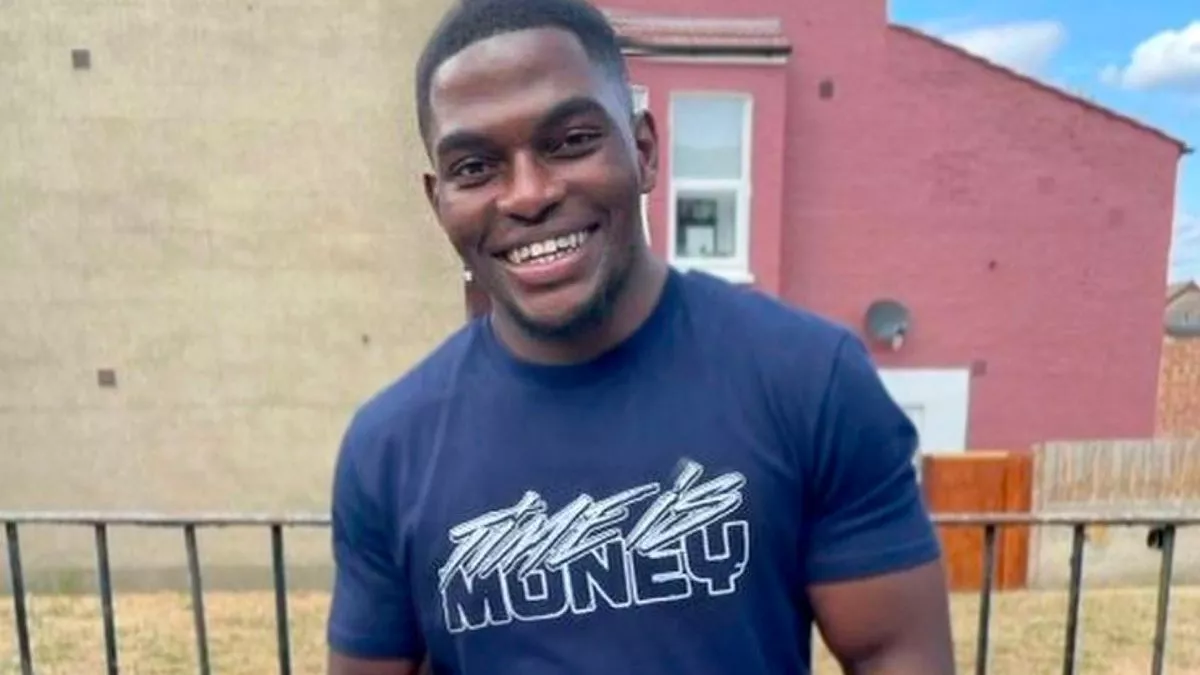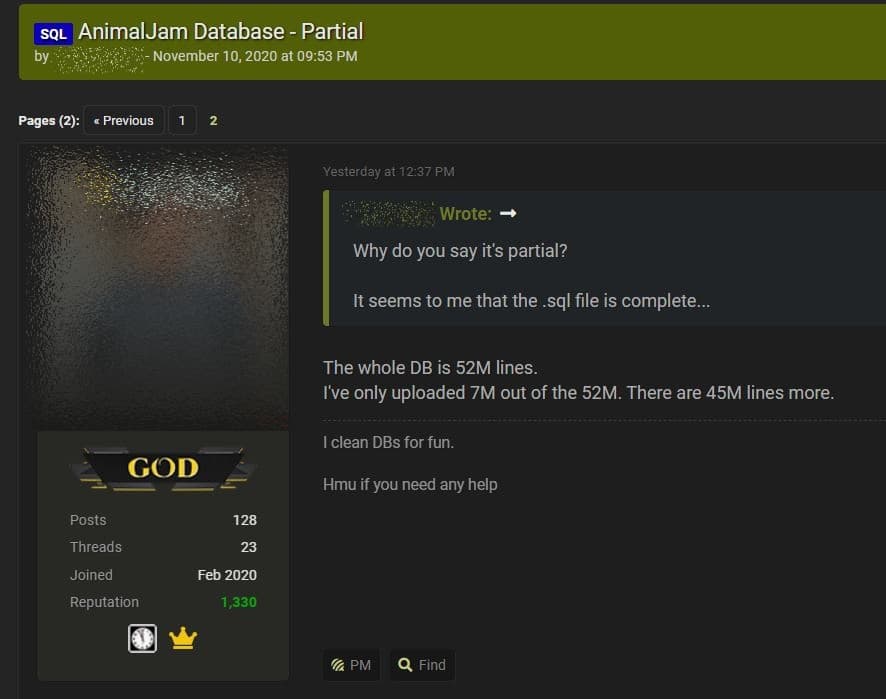Police Watchdog Challenges Chris Kaba Panorama: Ofcom Complaint Filed

Table of Contents
The IOPC's Concerns Regarding the Panorama Documentary
The Independent Office for Police Conduct (IOPC), the UK's police watchdog, has expressed serious concerns about the BBC's Panorama program on the Chris Kaba shooting. Their criticisms center on potential breaches of due process and impartiality, raising questions about the program's impact on the ongoing IOPC investigation.
-
Allegations of Bias and Prejudicial Editing: The IOPC alleges that the Panorama documentary presented a biased perspective, potentially prejudicing the ongoing investigation into Kaba's death. Specific concerns include selective use of evidence and a perceived lack of balanced representation of the police perspective. The IOPC argued that this unbalanced approach could influence public opinion and compromise the fairness of their investigation.
-
Jeopardizing the Fairness of the Investigation: A key concern for the IOPC is that the Panorama broadcast's content and presentation could undermine the fairness of their own investigation into Kaba's death. The IOPC argues that the broadcast may have influenced potential witnesses, impacted the impartiality of the investigation, and even potentially affected the outcome.
-
Procedural Irregularities: The IOPC's complaint also addresses potential procedural irregularities in how Panorama gathered and presented its information. This might include allegations of failing to adhere to proper journalistic ethics when dealing with sensitive information related to an ongoing investigation. The exact nature of these alleged irregularities remains to be fully disclosed.
-
Impact on Public Trust: The IOPC’s concerns extend beyond the immediate investigation. They highlight the potential damage to public trust in both police investigations and the BBC's commitment to impartial journalism.
The Ofcom Complaint and its Potential Implications
Following the IOPC's concerns, a formal complaint was submitted to Ofcom, the UK's broadcasting regulator. This complaint alleges breaches of Ofcom's broadcasting code, potentially leading to sanctions against the BBC.
-
Ofcom's Investigative Process: Ofcom will now conduct a thorough investigation into the complaint, reviewing the Panorama program and assessing whether it breached broadcasting standards. This process involves reviewing evidence, interviewing involved parties, and examining the context of the broadcast.
-
Potential Sanctions: Depending on Ofcom's findings, the BBC could face a range of sanctions, from a formal reprimand to substantial fines. In extreme cases, Ofcom could even revoke the BBC's broadcasting license, although this is highly unlikely.
-
The Legal and Regulatory Framework: Ofcom operates within a well-defined legal and regulatory framework. Their broadcasting code sets out clear standards for impartiality, accuracy, and fairness in news reporting. Breaches of this code can result in formal action.
-
Impact on Public Trust: The outcome of the Ofcom investigation will significantly influence public trust in both the BBC and the police. A finding against the BBC could erode public confidence in the media's role in holding the police accountable. Conversely, a dismissal of the complaint could strengthen public confidence in the BBC's journalistic standards.
The Wider Context: Police Accountability and Public Scrutiny
The Chris Kaba case and the subsequent controversy surrounding the BBC Panorama program highlight the ongoing tension between police accountability and the need for fair and impartial investigations. This is part of a broader debate about police brutality, institutional racism, and the role of the media in holding powerful institutions to account.
-
Police Accountability in the UK: The UK has established mechanisms for holding the police accountable, including the IOPC and various internal review processes. However, controversies like the Chris Kaba case highlight the ongoing challenges in ensuring effective and transparent accountability.
-
Balancing Public Scrutiny and Impartiality: The IOPC's concerns emphasize the delicate balance between the public's right to scrutinize police actions and the need for fair and impartial investigations. Premature or biased reporting can jeopardize the integrity of investigations and potentially deny justice.
-
Police Brutality and Institutional Racism: The Chris Kaba case has fueled existing concerns about police brutality and institutional racism within the UK police force. This is a complex and sensitive issue that requires careful consideration and systemic reform.
-
Media Responsibility: The controversy also underscores the crucial responsibility of media outlets in reporting sensitive cases involving police investigations. Accurate, balanced, and timely reporting is essential for maintaining public trust and facilitating fair investigations.
The Chris Kaba Case and its Significance
The fatal shooting of Chris Kaba, a 24-year-old unarmed Black man, by a Metropolitan Police officer in September 2022, has sparked widespread outrage and protests.
-
Circumstances of the Shooting: Kaba was shot dead following a police pursuit. The circumstances surrounding his death remain highly contested, with questions raised about the justification for the use of lethal force.
-
Demand for Justice: Kaba's family and supporters have called for a thorough and transparent investigation, demanding justice for his death. The Panorama program aimed to contribute to this demand, highlighting inconsistencies and perceived failures in the police response.
-
Developments Leading to the Complaint: The Panorama broadcast presented evidence and testimonies that fueled public anger and led directly to the IOPC’s concerns and the subsequent Ofcom complaint. This highlights the potential for media investigations to both support and potentially complicate the pursuit of justice.
Conclusion
The Ofcom complaint filed against the BBC Panorama documentary regarding the Chris Kaba shooting highlights the complex interplay between police accountability, media responsibility, and public scrutiny. The IOPC's concerns underscore the crucial need for impartiality in investigations, while the Ofcom process will determine whether broadcasting standards were met. The Chris Kaba case remains a focal point in the ongoing debate about police brutality and the need for systemic change.
Call to Action: Stay informed about the ongoing developments in the Chris Kaba case and the Ofcom investigation. Follow the news closely to understand the implications of this critical challenge to the BBC Panorama broadcast and the broader issue of police accountability. Engage in informed discussions about Chris Kaba and the need for improved police practices and transparency. Demand accountability for Chris Kaba and all victims of police misconduct.

Featured Posts
-
 Car Dealerships Renew Fight Against Mandatory Electric Vehicle Sales
May 01, 2025
Car Dealerships Renew Fight Against Mandatory Electric Vehicle Sales
May 01, 2025 -
 Rp 3 6 Triliun Target Investasi Bkpm Di Pekanbaru Tahun Ini
May 01, 2025
Rp 3 6 Triliun Target Investasi Bkpm Di Pekanbaru Tahun Ini
May 01, 2025 -
 What Is Xrp A Comprehensive Guide
May 01, 2025
What Is Xrp A Comprehensive Guide
May 01, 2025 -
 Two Bartlett Texas Structures Destroyed By Fire During Red Flag Warning
May 01, 2025
Two Bartlett Texas Structures Destroyed By Fire During Red Flag Warning
May 01, 2025 -
 Execs Office365 Accounts Targeted Millions Made In Data Breach Fbi Says
May 01, 2025
Execs Office365 Accounts Targeted Millions Made In Data Breach Fbi Says
May 01, 2025
